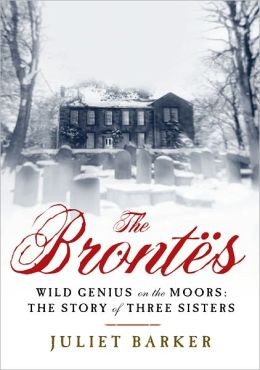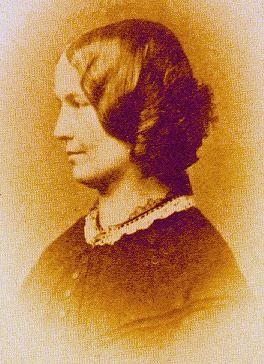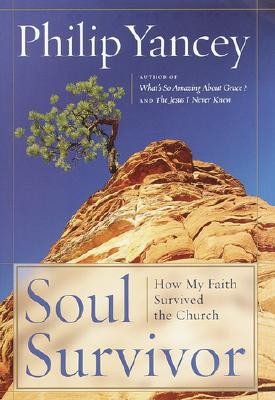The Brontes: Wild Genius on the Moors
 Unlike other biographies that have focused on single members of the Bronte family, in The Brontes Juliet Barker offers a perspective on all of them. The result is a richly contextualized development of each respective Bronte literary genius. Like other writers, Barker ends up focusing most closely on Charlotte Bronte (at age 38, she did live longer than any of her siblings, after all), but she begins with Charlotte’s father and narrates the story from an earlier point of origin. The book concludes after Charlotte’s death with an account of Mrs. Gaskell’s writing of her biography of Charlotte, its critical reception, and the last years of Charlotte’s father and husband.
Unlike other biographies that have focused on single members of the Bronte family, in The Brontes Juliet Barker offers a perspective on all of them. The result is a richly contextualized development of each respective Bronte literary genius. Like other writers, Barker ends up focusing most closely on Charlotte Bronte (at age 38, she did live longer than any of her siblings, after all), but she begins with Charlotte’s father and narrates the story from an earlier point of origin. The book concludes after Charlotte’s death with an account of Mrs. Gaskell’s writing of her biography of Charlotte, its critical reception, and the last years of Charlotte’s father and husband.
Barker corrects and clarifies a number of Bronte myths that have persisted since Mrs. Gaskell’s biography (1857), which offered an interpretation of the Brontes’ family life based on questionable sources and an underlying literary purpose to exonerate Charlotte Bronte from the imputation of “coarseness” in her novels. Charlotte Bronte emerges as no less dutiful and perhaps no less tragic than in Mrs. Gaskell’s presentation, but here she is equally interesting for her struggles and weaknesses. As a former curator of the Bronte museum in Haworth and a historical and literary scholar current in all things Bronte, Juliet Barker is well-equipped to re-examine familiar myths. Her interpretation of the Bronte family is a more human, detailed portrait than Mrs. Gaskell’s, less idealized but every bit as intriguing and mysterious.
There was so much in these 979 pages (+ notes) that made me want to stop and ponder. I could relate to, and could find reasons to admire, all three Bronte daughters. Having read Mrs. Gaskell’s biography, I found here much more substance and detail and was quickly caught up in in the drama and mystique of the whole Bronte family. I began reading the book on my Kindle but ended up checking out the library copy so that I could range more freely back over what I had already read, and access the notes more easily.
I wasn’t all that interested in the juvenilia for its own sake, but I could see how it “gave birth” to much in the later works. It primed the imaginative pump, so to speak, and cultivated a discipline of writing and a comfort with literary forms. All four Bronte children were accomplished writers and artists. Interestingly, the stories also seem to cultivate some of the obsessions and fascinations that later caused the Brontes problems. Though it seems to be generally assumed that the religious atmosphere of their home was oppressive and repressive, their imaginative reach gave no appearance of being inhibited, and despite his vigorous faith and clerical vocation their father did not hem them in in this respect at all. It prompted me to wonder about the relationship between the nature of a child’s imaginative world and later life, artistic and otherwise.

Though Charlotte is humanized here, and freed from her pedestal of absolute sainthood, it has to be said that her life did include more than its share of loss and depression, and one wonders what she would have become if born into more materially and culturally advantageous circumstances. It is usually Emily Bronte who is regarded as the greatest genius of the family, but Charlotte’s was a formidable intellect, coupled with an ambition and an ability greater than either of her sisters to form connections beyond the walls of her home and family. What would such a character have developed into if given several more decades? It’s one of the many questions we’re left pondering after this extensive foray into a remarkable family.
I found The Brontes to be an incredibly satisfying read, and I agree with the general consensus that it will probably never be surpassed as the definitive reading of this literary family. Barker writes crisply and insightfully about countless original sources she brings forward for general perusal – diary papers, correspondence, personal accounts, manuscripts and poetry, newspaper articles, juvenilia, drawings, paintings and photographs. I didn’t agree with her take in every instance, but still I found her to be a reliable, incredibly knowledgeable guide through an astonishing accumulation of data. It takes a unique skill to write biography, piecing together the artifacts of a life (or in this case, lives) with a blend of critical distance, respect and sympathy. Bringing order and meaning out of a wealth of material, and reflecting unfailing critical steadiness, The Brontes is a treasure trove for scholarly and popular readers alike.



3 Comments
Meghan
This sounds completely fascinating to me – just the sort of book I need to learn more about the Brontes. Excellent review!
Barbara H.
This does sound fascinating. I’m going to put it on my list of books to read.
I’ve been wondering how you’re doing – hadn’t heard from you here in a while and kept forgetting to check your other blog.
Susan@Reading World
Great review. It does sound like a definitive book on the Brontes. The page count makes it a bit daunting, but from what you say, the author fills the pages with worthwhile material. I’ll have to add this to my TBR list!